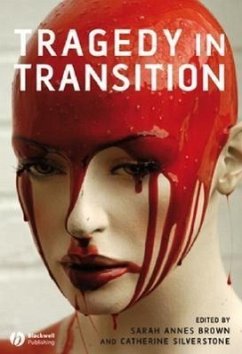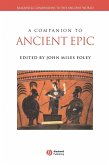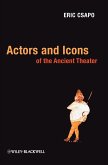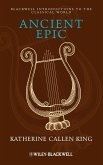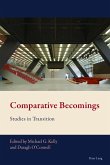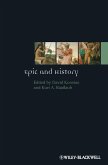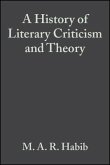Tragedy in Transition is an innovative and exciting volume that explores the theory and practice of tragedy from the Greek tragedians to the present day, tracing important developments, continuities and discontinuities in the tragic tradition and exploring the afterlives of some of the most resonant tragic narratives. Central questions - the role of the gods, for example - are examined in unexpected ways, and less traditional topics - including childhood and science fiction - allow new questions to be opened up. The volume as a whole employs a range of theoretical and critical approaches to press the boundaries of tragedy, encouraging the reader to interrogate the genre's parameters and its significance. An ideal resource for students, this accessible anthology offers an up-to-date and lively critique of a wide range of topics in the field.
"Sarah Annes Brown and Catherine Silverstone have assembledfourteen essays that adopt a 'transhistorical' approach in theiredited collection, Tragedy in Transition. Although not centred inearly modern drama, Jonson, John Ford, and especially Shakespeareare prominently featured in this superb, wide-ranging volume thatextends chronologically from Sophocles to filmmaker QuentinTarentino." (Studies in English Literature, July 2009)
"[It] was first voiced in 1961, that the twentieth century saw'the death of tragedy' ... .We can swallow this whole or attendto other, more meliorist perspectives--offered by Sarah AnnesBrown and Catherine Silverstone in another timely collection ofessays, Tragedy in Transition." (Times LiterarySupplement, January 2009)
"Setting the agenda for further research of this type." (TheClassical Review, 2009)"These timely and compelling essays address a remarkablerange of texts and topics from Sophocles and Shakespeare toTarantino and Kane, most notably the trauma of indeterminateidentity, of crossing boundaries and being caught in between times,so central to thinking about tragedy now."
-Adrian Poole, University of Cambridge
'The subject of tragedy is at once intimidating and well-worn.All credit then to the editors for having commissioned a variedcollection of essays that breaks fresh ground and makes unexpectedconnections. Contributors are not afraid to ask large questions,for example about the transcultural appeal of tragedy or itscompatibility with the postmodern condition. There is an emphasison enriching intertextualities and reception histories; on thelight that different tragic traditions with their continuities anddissonances can cast on one another. The volume as a whole suggestssome future directions our conversations about tragedy mightprofitably take."
-Charles Martindale, University of Bristol
"[It] was first voiced in 1961, that the twentieth century saw'the death of tragedy' ... .We can swallow this whole or attendto other, more meliorist perspectives--offered by Sarah AnnesBrown and Catherine Silverstone in another timely collection ofessays, Tragedy in Transition." (Times LiterarySupplement, January 2009)
"Setting the agenda for further research of this type." (TheClassical Review, 2009)"These timely and compelling essays address a remarkablerange of texts and topics from Sophocles and Shakespeare toTarantino and Kane, most notably the trauma of indeterminateidentity, of crossing boundaries and being caught in between times,so central to thinking about tragedy now."
-Adrian Poole, University of Cambridge
'The subject of tragedy is at once intimidating and well-worn.All credit then to the editors for having commissioned a variedcollection of essays that breaks fresh ground and makes unexpectedconnections. Contributors are not afraid to ask large questions,for example about the transcultural appeal of tragedy or itscompatibility with the postmodern condition. There is an emphasison enriching intertextualities and reception histories; on thelight that different tragic traditions with their continuities anddissonances can cast on one another. The volume as a whole suggestssome future directions our conversations about tragedy mightprofitably take."
-Charles Martindale, University of Bristol
